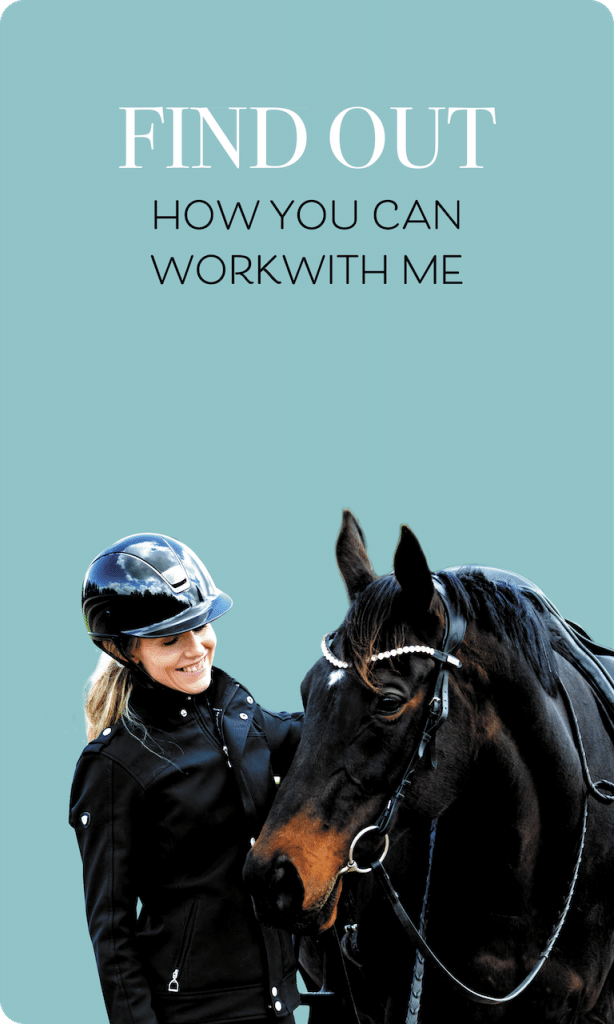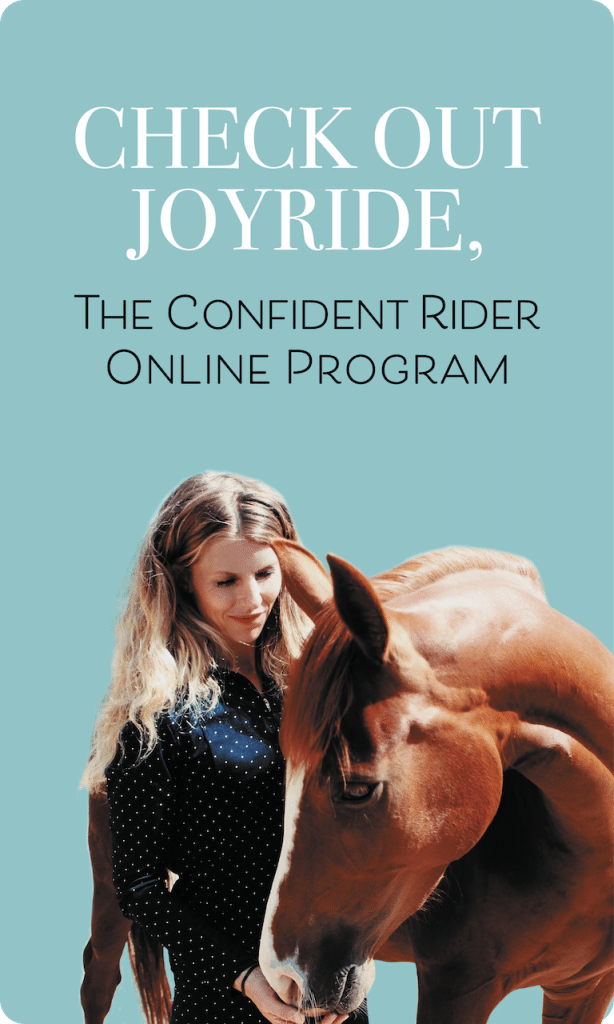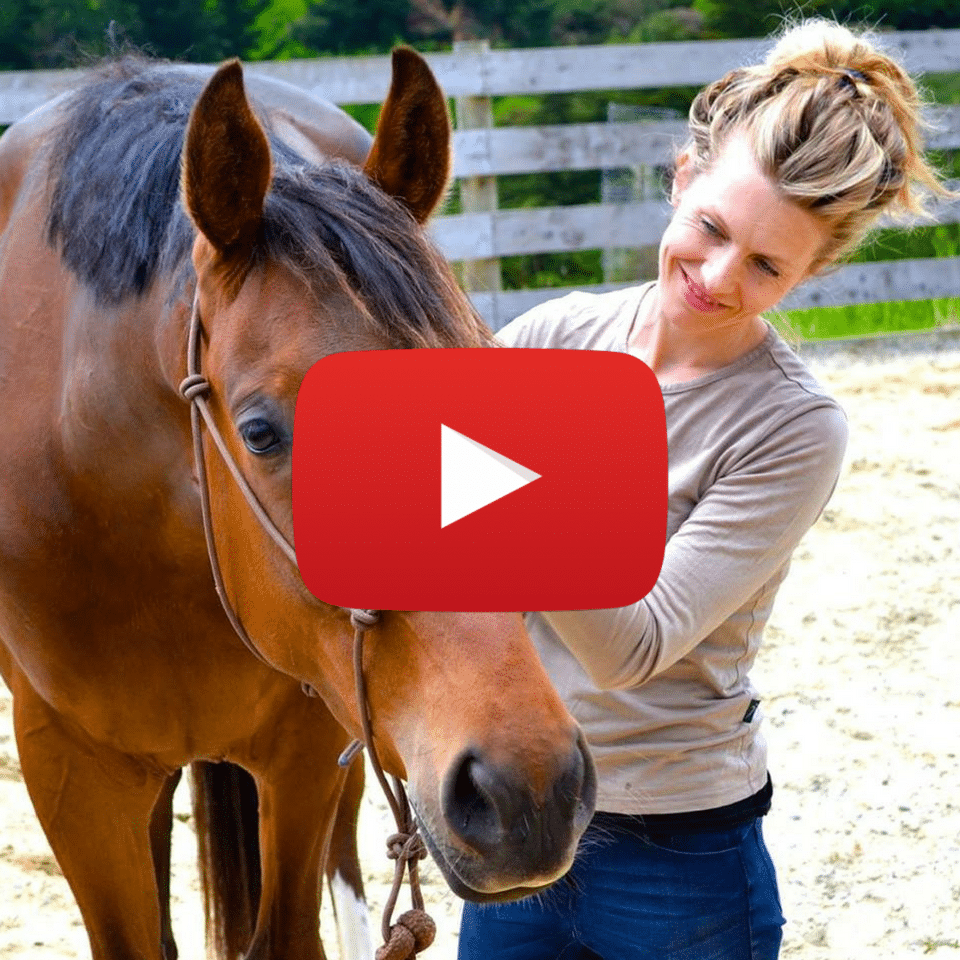Occasionally, I get tagged in posts on Facebook from riders who are going through some confidence issues or challenges that relate to my area of expertise. This happened again a couple of days back, except this time, the person in question was their daughter, a teenager who suffered crippling performance anxiety at competitions and became quite unpleasant to be around as a result.
Her mum, who was attempting to help within the scope of what she was able, felt angry with her that her daughter was lashing out or consistently losing her temper with her at these times, and many of the comments offered how this was “unacceptable”, how she should walk away and “teach her a lesson” or just refuse to take her or engage with her at the competition altogether.
Now from the outset, I want to say that I appreciate this is a tough gig, especially when you throw family dynamics into the mix. Emotions run high. But I wanted to take a few moments to offer a slightly different perspective so that we can better understand why anxiety often spills into anger, and how we can best respond to it.
Emotions travel in groups. Our emotional selves exist within a complex interaction of feeling and intuition that, when honored, allow us to respond effectively and appropriately to the situation that we find ourselves in. The problem is that the skills of emotional self-management and navigation are something very few of us are taught, much less understand. Consequently, we often find ourselves in situations of high emotional charge where we are unsure or unable how to process the energy to constructive benefit, and as a result, we look to discharge it by any means available to us, often resulting in explosive and seemingly irrational or disproportionate behavior.
Anxiety itself is a highly vulnerable and charged emotion. If you have ever felt yourself in an anxious space, you will recognize how threatened and vulnerable you feel, even if the reality of it is that you are perfectly safe. The emotional charge that anxiety liberates into the system is enormous, and the reason for this is legitimate and useful; after all, anxiety is us exercising our superpower of predicting the future in advance. In the face of perceived threat, it creates enough energetic momentum for us to remove ourselves from the situation in question so that we can rest and reset.
The problem, of course, arises when the anxiety response is not appropriate for the moment, or we are unable to remove ourselves physically, mentally or emotionally in order to find relief. So what then? Without the appropriate tools, we are left with a high-octane emotion floating around our body, searching for an outlet. One of the most obvious and easily available routes of discharge is through anger.
Anger at its essence is a protector. When we are using our anger healthily and productively, it allows us to set boundaries and preserve what is important to us. When we feel exposed, or unable to cope with what is going on internally, anger often steps forward as our emotional bodyguard. Not always but often, it’s a mask for a deeper vulnerability, shame or concern that’s flowing underneath. Rather than be forced into a corner where we need to look an emotion in the eye, we have neither the skill nor strength to deal with in the moment, anger provides welcome relief. It also allows us to turn our focus away from ourselves and towards other people or things who become unwitting and undeserved earth points for the electrical charge coursing within.
This is not only true of person to person interactions. Without appropriate awareness and skills, we know this to be true of person to horse interactions also.
I’m not suggesting that if we find ourselves the “earth point” in this dynamic that we simply stand there and take it. But it is important to understand the motivation behind the anger and its source, so our responses aren’t just mopping up the water instead of turning off the tap.
Responding to anger with more of the same only magnifies the situation. If we understand the underlying vulnerability, it becomes easier to maintain an emotional distance and not fuse ourselves with the experience. That intentional separateness allows us to question the deeper hurt beneath and understand that distancing or punishment is only going to drive the anxiety deeper in and strengthen the defensive mechanisms that support it. Naturally, this also begs the question: if we recognize the lack of emotional navigation skill that’s apparent in this context, are we equipped ourselves in such a way that allows us to be intentional in our support and response?
Often times, we are not. If we are asking something of someone else- an emotional maturity, a willingness to express vulnerability, a leaning into emotion- then we best be sure we are modeling the same.
Asking yourself is my response relieving or exacerbating the situation allows you enough time and space for a considered response.
The other thing? This is not about you. If you are the receiving end of anger fueled by anxiety (and supposing you are not the cause of the anxiety itself), it’s important to remember this is not about you.
The scope of this discussion does not include dealing with the anxiety itself, but in understanding the relationship between anxiety and anger in order to arm ourselves with empathy, compassion, and understanding for the times we find ourselves in the position of having to deal with it. After all, what lies beneath is often much more than what initially presents.
Onwards.
❤️Jane






One thought on “The Emotional Discharge Of Anxiety To Anger”
Jane thank you for that message. I know that when I put myself under pressure, say to enter a competition I become grumpy. The competition and the grumpiness are worrying.
Question is do I give up entering things which give me cause for concern or can I deal with it all in a better way. I need the challenge of the competition but have no idea how not to become stressed.
Comments are closed.